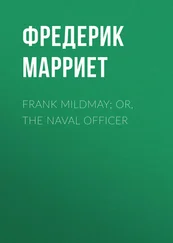Great Britain's doctrine was "once a subject always a subject." On the other hand, the United States maintained that any foreigner, after five years' residence within her territory, and after having complied with certain forms, became one of her citizens as completely as if he was native born. Great Britain contended that her war ships possessed the right of searching all neutral vessels for the property and persons of her foes. The United States, resisting this claim, asserted that "free bottoms made free goods," and that consequently her ships when on the high seas should not be molested on any pretext whatever. Finally, Great Britain's system of impressment, 2 by which men could be forcibly seized and made to serve in her navy, no matter at what cost to themselves, was repugnant to every American idea.
Such wide differences in the views of the two nations produced endless difficulties. To escape the press-gang, or for other reasons, many British seamen took service under the American flag; and if they were demanded back, it is not likely that they or their American shipmates had much hesitation in swearing either that they were not British at all, or else that they had been naturalized as Americans. Equally probable is it that the American blockade-runners were guilty of a great deal of fraud and more or less thinly veiled perjury. But the wrongs done by the Americans were insignificant compared with those they received. Any innocent merchant vessel was liable to seizure at any moment; and when overhauled by a British cruiser short of men was sure to be stripped of most of her crew. The British officers were themselves the judges as to whether a seaman should be pronounced a native of America or of Britain, and there was no appeal from their judgment. If a captain lacked his full complement there was little doubt as to the view he would take of any man's nationality. The wrongs inflicted on our seafaring countrymen by their impressment into foreign ships formed the main cause of the war.
There were still other grievances which are thus presented by the British Admiral Cochrane. 3 "Our treatment of its (America's) citizens was scarcely in accordance with the national privileges to which the young Republic had become entitled. There were no doubt many individuals among the American people who, caring little for the Federal Government, considered it more profitable to break than to keep the laws of nations by aiding and supporting our enemy (France), and it was against such that the efforts of the squadron had chiefly been directed; but the way the object was carried out was scarcely less an infraction of those national laws which we were professedly enforcing. The practice of taking English (and American) seamen out of American ships without regard to the safety of navigating them when thus deprived of their hands has been already mentioned. To this may be added the detention of vessels against which nothing contrary to international neutrality could be established, whereby their cargoes became damaged; the compelling them, on suspicion only, to proceed to ports other than those to which they were destined; and generally treating them as though they were engaged in contraband trade. * * * American ships were not permitted to quit English ports without giving security for the discharge of their cargoes in some other British or neutral port." On the same subject James 4 writes: "When, by the maritime supremacy of England, France could no longer trade for herself, America proffered her services, as a neutral, to trade for her; and American merchants and their agents, in the gains that flowed in, soon found a compensation for all the perjury and fraud necessary to cheat the former out of her belligerent rights. The high commercial importance of the United States thus obtained, coupled with a similarity of language and, to a superficial observer, a resemblance in person between the natives of America and Great Britain, has caused the former to be the chief, if not the only sufferers by the exercise of the right of search. Chiefly indebted for their growth and prosperity to emigration from Europe, the United States hold out every allurement to foreigners, particularly to British seamen, whom, by a process peculiarly their own, they can naturalize as quickly as a dollar can exchange masters and a blank form, ready signed and sworn to, can be filled up. 5 It is the knowledge of this fact that makes British naval officers when searching for deserters from their service, so harsh in their scrutiny, and so sceptical of American oaths and asseverations."
The last sentence of the foregoing from James is an euphemistic way of saying that whenever a British commander short of men came across an American vessel he impressed all of her crew that he wanted, whether they were citizens of the United States or not. It must be remembered, however, that the only reason why Great Britain did us more injury than any other power was because she was better able to do so. None of her acts were more offensive than Napoleon's Milan decree, by which it was declared that any neutral vessel which permitted itself to be searched by a British cruiser should be considered as British, and as the lawful prize of any French vessel. French frigates and privateers were very apt to snap up any American vessel they came across and were only withheld at all by the memory of the sharp dressing they had received in the West Indies during the quasi-war of 1799-1800. What we undoubtedly ought to have done was to have adopted the measure actually proposed in Congress, and declared war on both France and England. As it was, we chose as a foe the one that had done, and could still do, us the greatest injury.
The principles for which the United States contended in 1812 are now universally accepted, and those so tenaciously maintained by Great Britain find no advocates in the civilized world. That England herself was afterward completely reconciled to our views was amply shown by her intense indignation when Commodore Wilkes, in the exercise of the right of search for the persons of the foes of his country, stopped the neutral British ship Trent ; while the applause with which the act was greeted in America proves pretty clearly another fact, that we had warred for the right, not because it was the right, but because it agreed with our self-interest to do so. We were contending for "Free Trade and Sailors' Rights": meaning by the former expression, freedom to trade wherever we chose without hindrance save from the power with whom we were trading; and by the latter, that a man who happened to be on the sea should have the same protection accorded to a man who remained on land. Nominally, neither of these questions was settled by, or even alluded to, in the treaty of peace; but the immense increase of reputation that the navy acquired during the war practically decided both points in our favor. Our sailors had gained too great a name for any one to molest them with impunity again.
Holding views on these maritime subjects so radically different from each other, the two nations could not but be continually dealing with causes of quarrel. Not only did British cruisers molest our merchant-men, but at length one of them, the 50-gun ship Leopard , attacked an American frigate, the Chesapeake , when the latter was so lumbered up that she could not return a shot, killed or disabled some twenty of her men and took away four others, one Briton and three Americans, who were claimed as deserters. For this act an apology was offered, but it failed to restore harmony between the two nations. Soon afterward another action was fought. The American frigate President , Commodore Rodgers, attacked the British sloop Little Belt , Captain Bingham, and exchanged one or two broadsides with her,—the frigate escaping scot-free while the sloop was nearly knocked to pieces. Mutual recriminations followed, each side insisting that the other was the assailant.
Читать дальше












